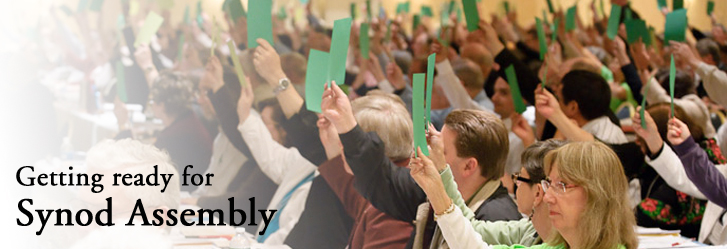lessons: Song of Songs 2:10-13, Hosea 6:1-6, Acts 14:8-18, Romans 8:18-25
I’m just gonna come out and say that Spring is my favorite season. The new life, blooming flowers, all the green – it really, truly, is my favorite time of year. So when the schedule for Common Ground was being worked up, and Springtime Hope came up as an option, I was all ME ! I’ll do it. But had I known that it would take place during final’s week at school, I might have hesitated. But I probably would have taken it anyways because Spring.is.just.awesome. I mean – no more big fluffy coats! No more huddling around a space heater! And if the hot water in my apartment doesn’t work (which happens more often than it should), you know, I don’t mind as much. I can get by! And there’s the flowers, and just the smells of spring. After the long dead gray drab winter – I just can’t get enough of Spring. That’s why I like that Song of Songs quote at the start of the service – “winter is past, the rain is over and gone – the time of singing has come!” It is just a hopeful time of year for me and I wish it could be Spring everyday.
But, Spring…. spring is weird too. I mean, we have Spring cleaning, the time to throw out the old, and bring in the new. So we dig through all our things, reorganize, decide that this is old and busted, and then we go out and buy something to fill up that old space. Or maybe that thing that is old and busted reminds us of a piece our past – maybe an old relationship or a past experience. And all of the sudden, we’re carrying it around ‚Äì and‚Ķit feels different‚Ķmaybe changed. It feels like there might be new life there ‚Äì like the new life outside. There’s‚Ķa bit of hope there.
Or maybe, no, maybe everything needs to be new and fresh. We’ll throw it all out, we’ll cut ourselves loose, remake ourselves. That might be the new life, hope, that we neeed. We’ll take a class, get a new haircut (well….I won’t but you might), buy new clothes, new shoes, and hang out in new places. And if you turn to fashion and lifestyle magazines – GQ, Esquire, Details – that’s what they’re all about. Ways to make you “more you.” That’s a springish hope too.
None of these things are bad, per se. I think they’re natural and normal. I think that hope in our past or that hope in cutting ourselves from that past ‚Äì sometimes we need that.
But there’s a problem with this kind of Hope – and, well, I’m gonna use something that Paul says in Roman when he brings up that whole “redemption of our bodies” thing. When I first read this passage, I’ll admit I didn’t think about heaven, or grace, or resurrection, or any of those churchy things. And that’s, well, bad, because I’m in seminary ‚Äì I’m supposed to notice those things. In fact, I’ve had an entire course on Paul and Ancient Rome’s view of the body and how different it is than what we think today. And even after all that, I still, when I think about the Spring and body ‚Äì is the pool, summer, fun in the sun‚Ķthe beach! And how I haven’t done a sit-up all winter. In fact, I’ve been eating all the Starbucks pastries that seem to magically keep showing up here at Advent. I’ve been “invited” into my school’s all-you-can-eat-buffet all winter long and enjoying piles of cookies for lunch because dessert at lunch is awesome. I even indulged in a little of that today as a matter of fact. So there’s no way that I’m ready to go out there in my swimsuit – no way I’d feel comfortable. I know I’m not the only one who thinks this way – and, to be honest, when it comes to being told you have body issues – women have it way worse than I ever will. So, as much as I love Spring, there are parts of it that I dread. There’s fear too. Because in spring cleaning, those new connections, that new me – there’s that little ol’ fact that the old me isn’t good enough. There’s so much expectation that‚Ķthat we can get better, be different, be all the things we’re supposed to be. And if we don’t make it, if we don’t reach our hopes, goals, dreams – then that’s our fault. And that’s the problem with Springtime – it’s all left up to us.
But is that Paul’s hope? Creation’s Hope? That we have the final say and that everything is up to us? I don’t think so. If we believe we can control it, then Paul wants to have nothing to do with that hope. That’s not even the hope that the beloved in Song of Songs is saying or the hope in the healing story of Acts where the first thing that people wanted to do when they saw the healing was make Paul and Barnabas gods – as if they had ultimate control over what they did. The hope that Paul is talking about in Romans is simply that God has gone ahead and taken control. When it comes to you – to the person you are – God has said that you’re worth being loved. And not only that, but through Jesus and the Cross, through baptism, God went ahead and loved you. You’re not perfect – but God wants you anyways. That’s creation’s hope, that’s our Christian and our Easter hope!
But it’s not an easy hope. It’s a hope we don’t control but a hope that is given to us. And that’s scary. I mean, that love is on God – it’s God’s prerogative. As the song goes, God can do what God wanna do – and God’s doing it just for you. God took care of it! That is such a mindblowing thing because it just doesn’t seem to match with our expectations. It doesn’t really match up with our lives. There’s so much we’re supposed to control – our stuff, our jobs, education, relationships ‚Äì I mean, that’s what life, the world, society tells us. That’s what we tell ourselves. But when it comes to God’s love, God does it. God loves you and, in a way, God has faith in you.
I think we live our lives in a strange place. Like Paul said, we groan as we wait for adoption – we want that fullness that God promises for us right now. We want to see the spring rains. We want to live a life and be in a world where our only prayer is song and where everyone knows that they are loved. But sometimes, we’re gonna be stuck in winter. We’re gonna look for the spring sun and wonder if its going to come. There are days when our steadfast love for God is going to be ridiculously hard to maintain, if not impossible. But God’s love for you – is a Springtime Hope that has been promised to you, given to you. God has claimed you, even in your sorrows, doubts, sadness, joys, laughter, happiness, God has claimed all of you.
And that’s scary because it puts us in the strange position this time of year being loved while we want to change. That new life in the air, in the marketing campaigns all around us, means that as we throw everything out, or rework our past, or sneak out of the office for a quick jog to work off that donut from the morning meeting – we’re loved. We’ve already been marked with the cross – forever. We’ve already been adopted into God’s house even if we don’t feel like we belong there quite yet. And if we never get to that perfect feeling – and if we fail and never make the changes we think we’re supposed to make God is still with us. We’re not alone. And because we’re not alone – even our notion of “Spring change” is changed. Because God’s love is all about us ‚Äì we’re the focus ‚Äì it’s me and you and all of us ‚Äì but God’s love doesn’t stop at just us. It turns us. It calls out to us and leads us to grow into that fullness of love that is given to us. That love isn’t just a quantity ‚Äì or a measuring stick ‚Äì or a gague that is filled up and doesn’t do anything. It’s a force. It’s a motion. It’s a call. We’re called to struggle, to witness struggle, and to live out God’s love in the midst of struggle. It’s a call to love and to let others have a chance at love too. Springtime Hope, in many ways, is all about us ‚Äì and not at the same time. By God taking the initiative on us, we’re opened to love others ‚Äì our neighbors, family, friends, loved ones, everyone gathered here‚Ķand then even strangers ‚Äì no matter who they are ‚Äì we are opened to love them. Because a new dawn has broken, whether the world knows it or not. And since the resurrection of Christ, everyday is a true Spring day. For flowers have appeared on the earth, the fig tree is putting forth its figs, the vines are in blossom and the time for our singing, our witness, our love, our call to be that voice of the turtledove in our families, friendships, workplaces, neighborhoods, cities, states, nations, and world ‚Äì that time has come. That time is now. That’s our Springtime Hope. Amen


